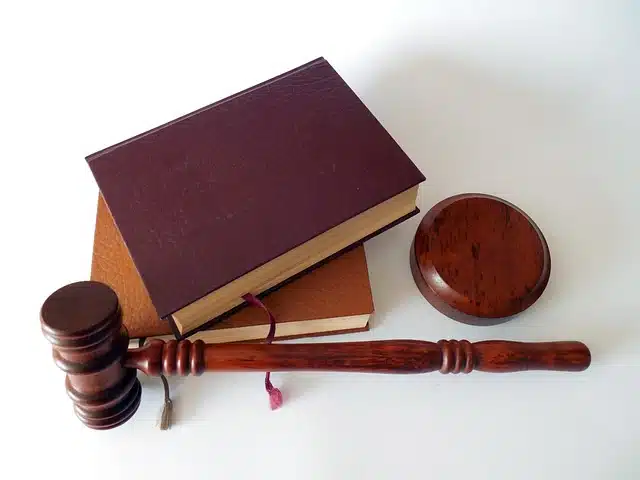What Does Pa Stand For Lawyer
If you’ve ever found yourself in need of legal assistance, you may have come across the term “PA” when speaking with a lawyer or searching for legal services online. But what exactly does PA stand for in the context of law?
PA stands for “Professional Association,” which is a type of business structure that is commonly used by lawyers and other professionals, such as doctors or accountants. Essentially, a Professional Association is a group of individuals who have formed a business together to provide professional services to clients.
In the case of lawyers, a Professional Association allows them to work together under one entity while still maintaining their own individual licenses to practice law. This means that each attorney within the PA can represent clients separately, but they can also collaborate on cases and share resources.
One of the benefits of a Professional Association for lawyers is that it provides liability protection for each individual attorney. This means that if one attorney is sued, the other attorneys within the PA are not held personally responsible for any damages awarded.
Another advantage of a Professional Association is that it allows lawyers to share expenses, such as rent, utilities, and office supplies. This can help reduce overhead costs and ultimately lead to more affordable legal services for clients.
It’s important to note that not all lawyers operate within a Professional Association structure. Some may choose to operate as sole practitioners, while others may work within larger firms or partnerships. However, for those who do choose to form a PA, it can offer a number of benefits and advantages.
In conclusion, PA stands for Professional Association in the context of law, and it is a business structure commonly used by lawyers and other professionals. If you’re in need of legal services, it’s worth considering whether the PA structure is right for your situation, as it can offer a number of advantages and benefits for both attorneys and clients alike.
How Does a Lawyer Benefit from Having a PA?
As a lawyer, time is one of your most valuable resources. With dozens of clients to manage and court cases to prepare for, it can be difficult to balance everything without a little help. That’s where a personal assistant (PA) comes in. Hiring a PA can be a game-changer for lawyers looking to streamline their workload and improve their practice.
First and foremost, a PA can handle administrative tasks that eat up your time. Things like scheduling appointments, organizing files, and managing emails can all be delegated to a competent assistant. This frees up your time to focus on the legal work you’re trained to do. By offloading these tasks, you’ll be able to increase productivity and take on more clients than ever before.
A PA can also act as a gatekeeper for your schedule. They can field calls and emails from potential clients, ensuring that only those who are serious about working with you make it onto your calendar. This saves you time and energy by preventing you from wasting hours on consultation calls that go nowhere.
But a PA does more than just handle administrative tasks. They can also act as a partner in your practice. A good PA will get to know your workflow and preferences, allowing them to anticipate your needs and provide support when you need it most. For example, they can assist with legal research, draft documents, and even accompany you to court hearings.
Finally, a PA can help you maintain a healthy work-life balance. By taking care of the small tasks that take up your time, you’ll be able to focus on the bigger picture and enjoy some much-needed downtime. This can lead to decreased stress levels, improved mental health, and a better quality of life overall.
In conclusion, hiring a PA can be an incredibly beneficial decision for lawyers looking to improve their practice. With a competent assistant by your side, you’ll be able to delegate administrative tasks, increase productivity, and maintain a healthy work-life balance. So if you’re feeling overwhelmed by your workload, consider hiring a PA to help lighten the load.
Qualifications and Skills Required to Work as a Lawyer’s PA
If you’re interested in working in the legal field, becoming a lawyer’s personal assistant (PA) can be a great career choice. PAs are responsible for providing administrative support to lawyers and ensuring that their day-to-day operations run smoothly. However, being a lawyer’s PA requires certain qualifications and skills that are critical for success in this role.
First and foremost, a high school diploma or equivalent is necessary to become a lawyer’s PA. However, having additional education such as an associate degree or paralegal certification can provide an advantage when seeking employment. These programs offer training in legal research, writing, and communication which are important skills for any legal professional.
In addition to education, strong organizational and communication skills are essential for a successful career as a lawyer’s PA. PAs must be able to manage multiple tasks simultaneously and prioritize deadlines effectively. They should also have excellent written and oral communication skills, as they will be responsible for drafting legal documents, answering phones, and communicating with clients.
Attention to detail is also crucial for PAs working in the legal field. They must be able to identify errors in documents and ensure that all paperwork is accurate and complete. Additionally, they must maintain the confidentiality of client information and adhere to ethical standards.
Lastly, having a basic understanding of legal terminology and procedures can be beneficial in the role of a lawyer’s PA. Understanding legal jargon can help the PA better assist the lawyer in research and document preparation.
In conclusion, becoming a lawyer’s PA requires a combination of education, skills, and personal qualities. Attention to detail, strong communication and organization skills, and a basic understanding of legal terminology are essential for success in this role. If you possess these qualifications and skills, a career as a lawyer’s PA may be a fulfilling and rewarding path for you.
Exploring the Different Types of PAs in the Legal Industry
The legal industry is a complex and intricate field that requires various professionals to ensure its smooth operation. One such professional is the legal assistant, also known as a paralegal. PAs play an essential role in the legal industry by providing support to attorneys, law firms, government agencies, and corporations. However, not all PAs are created equal, and there are different types of PAs in the legal industry. In this article, we will explore the various types of PAs in the legal industry.
Litigation Paralegals:
Litigation PAs are responsible for assisting attorneys with trial preparation. They manage case files, draft pleadings, conduct research on legal issues, organize documents, and communicate with clients. Litigation PAs must have excellent organizational skills, attention to detail, and the ability to work under pressure.
Corporate Paralegals:
Corporate PAs work in law firms or corporate legal departments. Their primary responsibility is to assist with transactional matters, such as mergers and acquisitions, initial public offerings, and securities filings. They also provide support for corporate governance, regulatory compliance, and contract management.
Intellectual Property Paralegals:
Intellectual property (IP) PAs specialize in trademark, copyright, and patent law. They help attorneys prepare and file applications with the US Patent and Trademark Office (USPTO). IP PAs also assist with protecting clients’ intellectual property rights, conducting trademark clearance searches, and drafting licensing agreements.
E-discovery Paralegals:
E-discovery PAs are responsible for managing electronic documents during the discovery phase of litigation. They use specialized software to search, review, and analyze electronic data related to a case. E-discovery PAs must have a strong technical background and knowledge of e-discovery tools.
Conclusion:
In conclusion, the legal industry relies heavily on the services provided by PAs. The different types of PAs in the legal industry require different skill sets and knowledge. Litigation PAs must have excellent organizational skills, while corporate PAs must understand transactional matters. IP PAs require a deep understanding of intellectual property law, and e-discovery PAs must be proficient in e-discovery tools. By understanding these different types of PAs, you can better appreciate the important role they play in the legal industry.
Tips for Finding the Right PA for Your Law Firm

As a law firm, finding the right personal assistant (PA) can be a crucial step in improving efficiency and productivity. However, selecting the right PA for your firm can be a daunting task. In this article, we will discuss some tips for finding the right PA for your law firm.
1. Identify Your Needs: Before you start looking for a PA, it is important to identify the specific needs of your law firm. Determine what tasks you need assistance with, such as scheduling, document preparation, or client communication. This will help you narrow down your search to candidates with relevant skills and experience.
2. Look for Relevant Experience: Ideally, your PA should have relevant experience in the legal field. Look for candidates who have worked in law firms, legal departments, or have legal secretarial experience. This will ensure that they are familiar with legal terminology and procedures, which can save you time and resources on training.
3. Review Their References and Past Performance: Before hiring a PA, make sure to check their references and past performance. Ask for recommendations from previous employers and verify their employment history. This will give you an insight into their work habits, abilities, and reliability.
4. Test Their Communication Skills: A good PA should have excellent communication skills. During the interview process, test their ability to communicate effectively and professionally, both in writing and verbally. This will ensure that they can handle client interactions and represent your firm in a positive light.

5. Consider Their Personality Fit: Finally, consider the candidate’s personality fit with your law firm’s culture and values. A good PA should be reliable, trustworthy, and able to work well under pressure. They should also be flexible and adaptable to changing priorities.
In conclusion, finding the right PA for your law firm requires careful consideration and research. By identifying your needs, looking for relevant experience, reviewing their references, testing their communication skills, and considering their personality fit, you can select a PA that will help improve your firm’s efficiency and productivity.
The Pros and Cons of Hiring a PA for Your Law Practice
As a lawyer, the decision to hire a Personal Assistant (PA) for your law practice can be a daunting one. On one hand, it can seem like a wise investment to bring on additional help to manage administrative tasks and improve efficiency. However, there are also some potential drawbacks to consider before making a final decision.
First of all, let’s explore the pros of hiring a PA for your law practice. One of the most significant benefits is time management. By delegating various tasks to a PA, you can free up valuable hours each week that would otherwise be spent on administrative work such as scheduling appointments, managing emails and phone calls, and organizing documents. This allows you to focus more of your time and energy on delivering quality legal services to your clients.

Another pro of hiring a PA is that it can improve client satisfaction. With a PA handling administrative tasks, you can respond to client inquiries more quickly and efficiently, which can improve their overall experience with your law practice. Additionally, having a dedicated PA to manage scheduling can reduce the likelihood of double bookings or missed appointments, which can help maintain positive relationships with clients.
On the other hand, there are also some cons to consider when deciding whether to hire a PA. One potential drawback is the cost. Depending on the level of experience and responsibilities assigned, a PA can be a significant expense for a small law practice. If you’re not prepared to commit to a full-time employee, you may need to consider outsourcing certain tasks to a virtual assistant or part-time contractor, which can also add to the cost.
Another con to consider is the potential for miscommunication or errors. As the owner of the law practice, you’ll still need to oversee and manage the work of your PA. If communication isn’t clear or expectations aren’t properly outlined, mistakes can be made that could have serious consequences for your clients or your business.
In conclusion, the decision to hire a PA for your law practice requires careful consideration of the pros and cons. While it can be a valuable investment in terms of time management and client satisfaction, it’s important to weigh these benefits against the potential costs and risks involved. By carefully assessing your needs and capabilities, you can make an informed decision that will benefit both you and your clients in the long run.
Future Outlook: The Role of PAs in the Ever-Evolving Legal Landscape
As the legal landscape constantly evolves, the role of PAs (Paralegal Assistants) has become increasingly important. With their comprehensive knowledge of legal procedures and processes, PAs are essential to any successful law practice. In this article, we will explore the future outlook for PAs in the legal industry and how they play a vital role in adapting to changes in the legal landscape.
One of the primary reasons for the growing importance of PAs is the increased demand for legal services. As the population grows and becomes more complex, there is a corresponding increase in the number of legal issues that require resolution. This means that more legal professionals are needed to handle the volume of cases, and PAs are a valuable asset to any team.
Another factor contributing to the rise of PAs is the ever-changing nature of the legal industry. New technologies and legislative developments can dramatically alter the landscape overnight, and PAs are often the first line of defense in helping law firms ensure that they remain compliant. They understand the nuances of legal jargon and have extensive training in research skills, which allows them to stay up-to-date on all the latest developments.
PAs also play a significant role in easing the workload of lawyers and other legal professionals. These highly trained assistants are capable of handling many of the time-consuming administrative tasks that would otherwise take up valuable resources. This frees up attorneys to focus on more critical aspects of their work, such as client consultations, trial preparation, and negotiations.
In conclusion, the future outlook for PAs in the ever-evolving legal landscape looks bright. As the demand for legal services continues to grow and new technologies change the way businesses operate, PAs will become even more valuable assets to law firms. By staying ahead of the curve and adapting to new challenges, PAs can help their clients navigate the complex legal landscape with confidence and efficiency.





